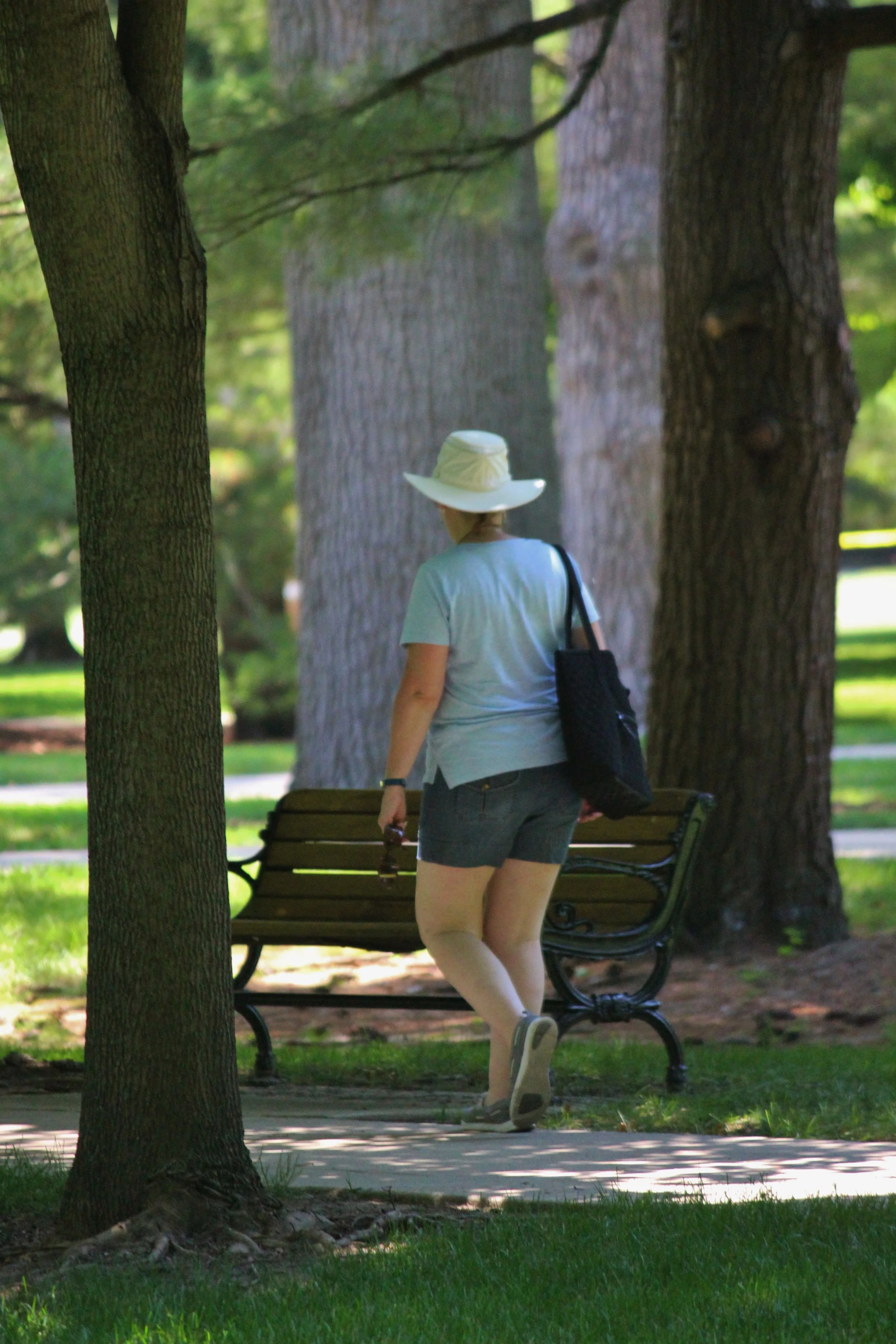Beyond Walls
The homemade, hard-candy windows and gingerbread walls, that held hours of work in their structure, made a cacophony as they fell from the table and hit the floor. The shattered mess crunched underfoot.
“Oh, my f%&*ing word!”
This wasn’t my first gingerbread creation. It wasn’t the first time I had a wrecked one in front of me. It wouldn’t be the first time that I took in a deep breath, rolled my eyes, and started anew, driven by the need to not be defeated.
This time would be different.
I said, aloud to my husband, “I am going to wait five minutes before I decide whether or not to make a new one.”
Five minutes later: “I am going to decide later tonight, whether or not to make a new one.”
One hour later: “I am not going to make a new one.”
This might seem like giving up, but it was a new direction for me. It required me to accept failure, tolerate it, and endure the moments throughout the holiday season when I wished I had created something fun and festive and now felt something missing. This impelled me to mute my ego and open myself to being content with not getting my way. It demanded I sit with the forces that disrupt my day, by finding a way to walk with them instead of fight them or snuff them out.
The spot where the gingerbread house would be was in front of me and while I wish it were otherwise, it would not hold a gingerbread house. It was my challenge to not need to yearn for what I wish it had held. It was my challenge to appreciate it as is.
Well, I managed to handle that, but unfortunately, that was the only disappointment I handled well in the past few months.
For whatever reason, December confounded me. There were lots of metaphorical gingerbread houses shattered at my feet. My mood felt broken. My body pulsed with a defensive need to push back against everything in its path. While I had spent most of my life doing battle with my fickle mood, for the past five months things had felt on keel.
Not December.
As habit would have it, I spent considerable amounts of time ruminating on possible causal factors in my downward spiral. There are a few situations I was in because I didn’t assert myself. There was my entrenched insomnia that might be related to seasonal lack of daylight and, as I just stated, my disappointment in myself. No question that affected my mood, but my mood this time was different, with more rage than despondency. I talked to myself and there was no answer. I seethed at all the “stupid” events of the world, but it didn’t make me feel better. I entrapped myself in a toxic cloud of irritation, and it was suffocating. If I was a rooting animal, I would have buried myself in a hole somewhere. My primitive brain built a barricade, as if that would make me feel safe, again.
I wrote this poem for my traditional New Year card, (as it’s the only holiday I can be timely in sending cards), and it revealed that I did know the answer to my problem:
These days, with their chill and lack
of sun, we too easily incline inward, guarding
against the winds, hunkering behind
walls of our own making, thinking
we are protecting ourselves from further
onslaught.
Yet, the cold deepens.
For, these times require opposite action,
the courage to step outside our fortifications
and open to the widest perspective.
It is out there, on the distant horizon,
in the remote corners of view,
that we find the answers, the light
we crave. It is out there,
that the universe spreads its arms,
embracing us with the warmth
of illuminating awe.
Brene Brown says in her book, Braving the Wilderness, that when we feel like putting distance between what bothers us and ourselves, we only exacerbate our situation. “Move in,” is her recommendation. “People are hard to hate close up.” She is so right about that. While she was talking about social divisiveness, I believe this applies to all our experiences of struggle. Things are hard to hate close up.
Depression, and its sister state—anger, are rooted in disconnection and separation. Us and them. Ourselves and it. There are multiple permutations of this experience. Our brain’s natural response to feelings of threat or danger is to fight, flee, or freeze. This reflexive response helped our ancestors survive brutal environments and conditions, but it hasn’t evolved to recognize the difference between an invading horde and a bothersome noise, or an intense disappointment. It misreads irritation, frustration, discontent as life-threatening. Those who know me best, can validate that my fight-or-flight response is overly reactive and has been since I came out of my mom’s womb. I would have thrived against an invading horde, but that skill is maladaptive in today’s world. The smallest frustration can send me into a deeply, negative, fight state.
I think my December was a mountain of various disappointments in my country’s leaders, in some events that I felt I couldn’t control (emphasis on “felt”), and in myself. Add the lack of daylight that triggered some intense insomnia (there were four nights when I achieved 0 minutes of sleep), and I began to emotionally wall off. Anytime anything threatened to break through that wall, something as small as a person talking to me when I was intent on ruminating about my awful state, launched me into a hot-fire, voiceless rage. As happens when that primitive part of the brain is activated, my logical-thinking, prefrontal cortex was deactivated. All rationality was gone. Any ability to find some way to soothe myself vaporized.
No surprise, then, that I developed a serious case of bronchitis that still plagues me in February. It’s a hard way to learn a lesson. My health, both physical and mental, depends on minimizing the reflex to build walls in a vain attempt to protect myself from disappointment, sadness, and frustration. I lost two and-a-half months of living.
How to prevent this injury and loss? When triggered I want to take moments to be mindful, to feel the ground under my feet, to feel my breath move in-and-out, to remember that times that challenge us are almost always temporary, like the tide that ebbs. It will require me to be honestly assertive about what I want. I want to remember that only imminent death is worthy of a full-throated, protective response. I want to develop a kit of exercises and/or activities to remain grounded. I want to be able to better tolerate dualities that are part of this life—that both good and bad can coexist, that bad doesn’t mean there is not good. That good doesn’t mean there is no bad, and that both provide material to better myself. Light cannot be appreciated without shadow and shadow cannot be appreciated without light. I want to “move in” when something gets uncomfortable; remove the delusion of protective walls; get closer to the struggle so I can see it, understand it, and find a way to live with it.
As Brown in Braving the Wilderness, sums it up, “But when we zoom in on our own life, the picture changes from a distant, raging, and atrophying heart to the beating pulse of our everyday existence.” Or, as Pema Chodron writes in, When Things Fall Apart: Heart Advice for Difficult Times, “When you wake up in the morning and out of nowhere comes the heartache of alienation and loneliness, could you use that as a golden opportunity? Rather than persecuting yourself or feeling that something terribly wrong is happening, right there in the moment of sadness and longing, could you relax and touch the limitless space of the human heart?”
Here’s to learning to move beyond the walls that we build for ourselves, walls that separate and cause distance. Here’s to staying open to searching the vast horizon for that light to see the answers, to remind yourself that there is so much out there in which to find comfort. It really is right in front of us if we are willing to be vulnerable. That is how to feel free and find ease, no matter what crashes and crumbles at our feet.






















